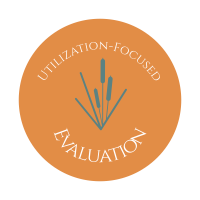Developmental Evaluation supports innovation development to guide adaptation to emergent and dynamic realities in complex environments. Innovations can take the form of new projects, programs, products, organizational changes, policy reforms, and system interventions. A complex system is characterized by a large number of interacting and interdependent elements in which there is no central control. Patterns of change emerge from rapid, real time interactions that generate learning, evolution, and development – if one is paying attention and knows how to observe and capture the important and emergent patterns. Complex environments for social interventions and innovations are those in which what to do to solve problems is uncertain and key stakeholders are in conflict about how to proceed.
Developmental Evaluation Resources:
Developmental Evaluation. Applying Complexity Concepts to Enhance Innovation and Use
Developmental Evaluation Exemplars
A Developmental Evaluation Companion by Jamie Gamble, Kate McKegg and Mark Cabaj
USAID Developmental Evaluation Guide
Retrospective Developmental Evaluation Examples
Video about the World Food Program: Retrospective Developmental Evaluation
Retrospective Developmental Evaluation of Juvenile Justice Reform in Nebraska
Examples of Developmental Evaluation Reports

